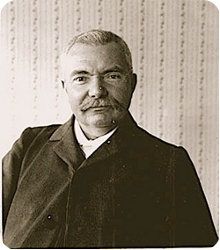A Quote by Robert Aris Willmott
We waste the power in impatience which, if, otherwise employed, might remedy the evil.
Related Quotes
That this liberty [of the press] is often carried to excess; that it has sometimes degenerated into licentiousness, is seen and lamented, but the remedy has not yet been discovered. Perhaps it is an evil inseparable from the good with which it is allied; perhaps it is a shoot which cannot be stripped from the stalk without wounding vitally the plant from which it is torn. However desirable those measures might be which might correct without enslaving the press, they have never yet been devised in America.
There are two main human sins from which all the others derive: impatience and indolence. It was because of impatience that they were expelled from Paradise; it is because of indolence that they do not return. Yet perhaps there is only one major sin: impatience. Because of impatience they were expelled, because of impatience they do not return.
Nature is not evil. The world occasionally shrugs its shoulders, and people get knocked off. The earth, for geological reasons that are well known, is a fairly risky place to live. To be evil, you have to have intent. Any remarkable natural happening in which no human will is employed cannot be regarded as evil.
There are two cardinal human sins out of which all others derive, deviate, and dissipate: impatience and lassitude (or perhaps nonchalance). On account of impatience they are driven out of paradise; on account of lassitude or nonchalance they do not return. Perhaps, however, only one main sense of sin is given: impatience. On account of impatience they are driven out, on account of impatience they do not turn back.
When there exists anywhere a state of suffering, a wrong, a condition of affairs that men of feeling deplore and that troubles the conscience of the upright, to become resigned to it is wicked. Although the evil flaunts itself before our eyes, and no remedy is in sight, we must go and seek a remedy. In the creation of the God of Justice, evil can be but a transitory state.
I'd have no rituals, but I'm a person of compulsive habit. That's just some awful residue of a ritual. And one of the reasons for that is my living this life, which is otherwise so free of obligations. It's not at all unusual for anybody who's independently employed to crave a way of living whereby they create the structures without which their lives would otherwise start slopping around all over the place.
Otherwise I got out of bed on two strong legs. It might have been otherwise. I ate cereal, sweet milk, ripe, flawless peach. It might have been otherwise. I took the dog uphill to the birch wood. All morning I did the work I love. At noon I lay down with my mate. It might have been otherwise. We ate dinner together at a table with silver candlesticks. It might have been otherwise. I slept in a bed in a room with paintings on the walls, and planned another day just like this day. But one day, I know, it will be otherwise.
My study of Gandhi convinced me that true pacifism is not nonresistance to evil, but nonviolent resistance to evil. Between the two positions, there is a world of difference. Gandhi resisted evil with as much vigor and power as the violent resister, but True pacifism is not unrealistic submission to evil power. It is rather a courageous confrontation of evil by the power of love. . . .
The error of the ignorant goes so far as to say that God's power is insufficient, because he has given to this Universe the properties which they imagine cause these great evils, and which do not help all evil-disposed persons to obtain the evil which they seek, and to bring their evil souls to the aim of their desires, though these, as we have shown, are really without limit.
Evil denotes the lack of good. Not every absence of good is an evil, for absence may be taken either in a purely negative or in aprivative sense. Mere negation does not display the character of evil, otherwise nonexistents would be evil and moreover, a thing would be evil for not possessing the goodness of something else, which would mean that man is bad for not having the strength of a lion or the speed of a wild goat. But what is evil is privation; in this sense blindness means the privation of sight.
On any other hypothesis, the delegation of judicial power would annul the authority delegating it; and the concurrence of this department with the others in usurped powers, might subvert forever, and beyond the possible reach of any rightful remedy, the very Constitution which all were instituted to preserve.

































